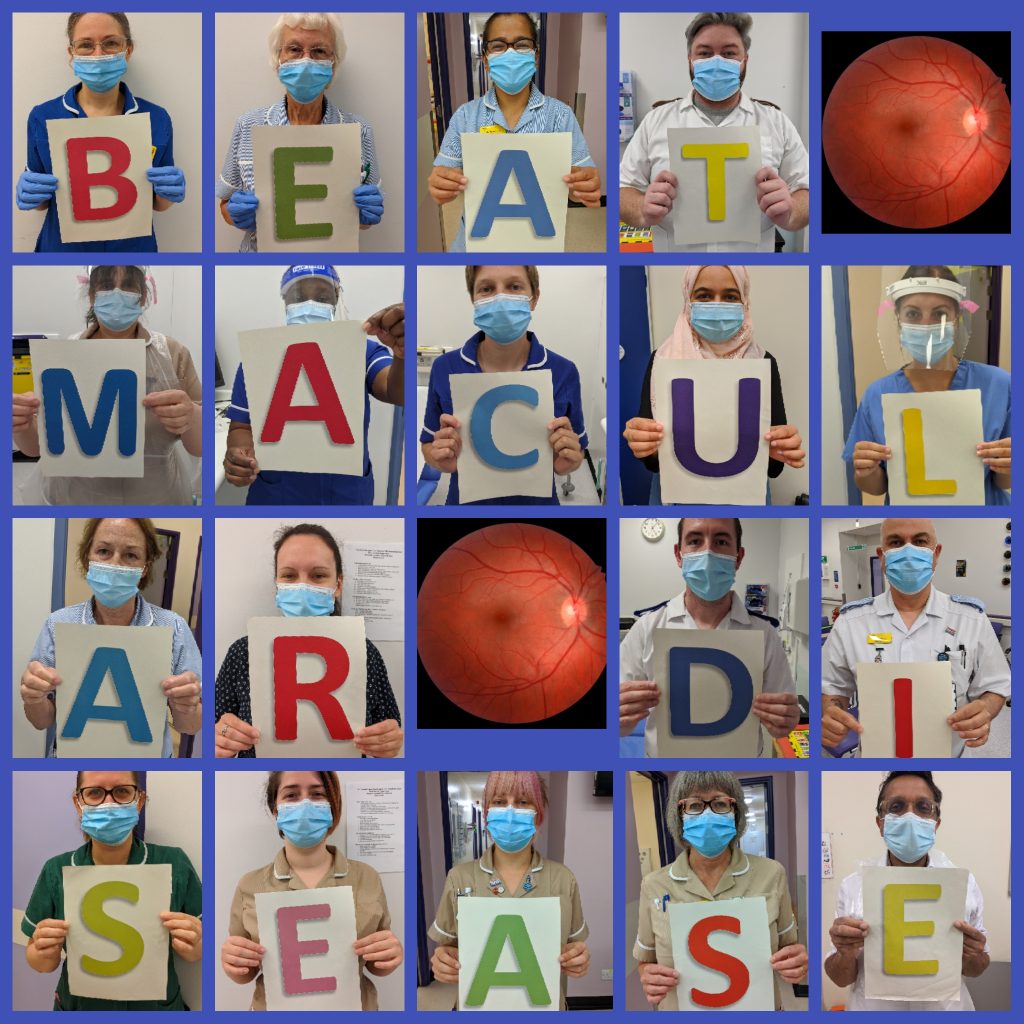The ophthalmology team at the Newcastle Eye Centre provide rapid, specialist care to help save the vision of thousands of patients with sight threatening macular conditions.

Michelle Blyth, Ophthalmic Specialist at the RVI’s Newcastle Eye Centre, who specialises in conditions affecting the retina explains:
“The macula is part of the retina at the back of the eye. It is only around 5mm in size but is so important; providing our detailed, central vision and most of our colour vision.”
The most common macular condition is age-related macular degeneration (AMD) – the leading cause of vision loss in the developing world, affecting more than 600,000 people in the UK alone.
Other macular diseases include diabetic retinopathy, central serous retinopathy, retinal vein occlusion and myopic macular degeneration.
During Macular Week (21st – 27th June), we take a closer look at AMD, the risk factors, what you should look out for and what action you should take should you become worried or symptomatic:
What is AMD?
AMD causes a gradual deterioration of the macula, usually over many years. This causes sight problems and can even cause loss of central vision altogether. It tends to occur most commonly after the age of 60. Most people have the dry form of the disease, for which there is currently no treatment. Around 10-15% of people with dry AMD will go on to develop wet AMD, where blood vessels grow and leak in the macula.
Whilst there is no cure, it’s thanks to medical research that effective treatments are available at specialist eye centres such as the Newcastle Eye Centre. Some patients with wet AMD can have regular injections of medicationdirectly into the affected eye to limit the growth of the new, leaky blook vessels.
Michelle explains “This can help to keep the progression of the condition at bay, and can even improve vision in some cases.”
What are the risk factors?
The risk of AMD increases with age and is more likely if there is a family history, both of which we have no control over! However, there are some modifiable aspects of our lifestyles that may help. You should stay healthy by eating a balanced diet, exercising regularly, losing weight if necessary and by stopping smoking if applicable. Some studies have shown certain vitamin supplements might stop AMD worsening, although this is not conclusive.
What should you look out for?
Any sudden changes in vision, in particular new distortion which can make straight lines appear wavy, reduced central vision which may make reading or recognising faces difficult, or a blank patch in the centre of the vision. We recommend regular opticians checks even if you don’t have any symptoms, as they can detect early signs of many eye conditions.
What should you do if you’re worried or become symptomatic?
Changes in vision should be reported as soon as possible; you can visit your optician who will either send a letter to your GP or refer you directly to the hospital. If they are concerned about wet AMD, you’ll be referred very quickly to an ophthalmologist at the hospital. If treatment can be given it needs to be given quickly before too much damage occurs. The Newcastle Eye Centre also has an Eye Emergency department you can attend.
By spreading awareness, we hope to help people understand and recognise the symptoms of macular diseases early, and to continue the fight to save sight!
For more information about macular conditions and Macular Week, please visit the Macular Society website:
